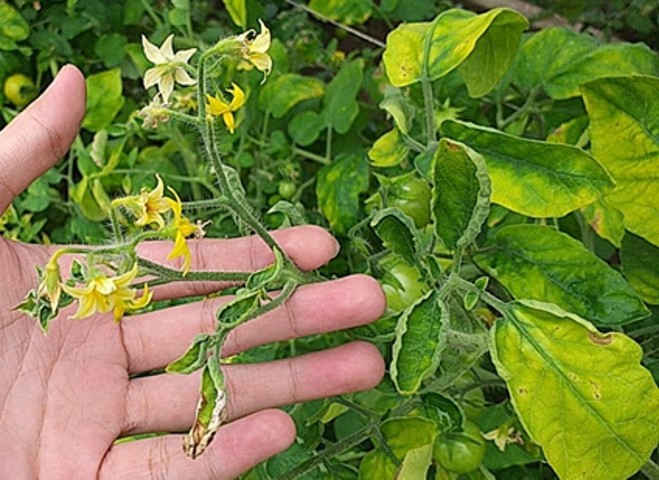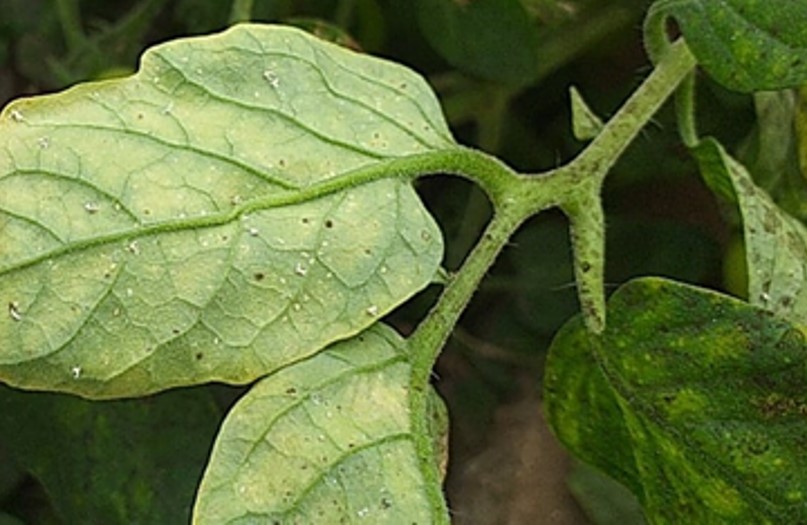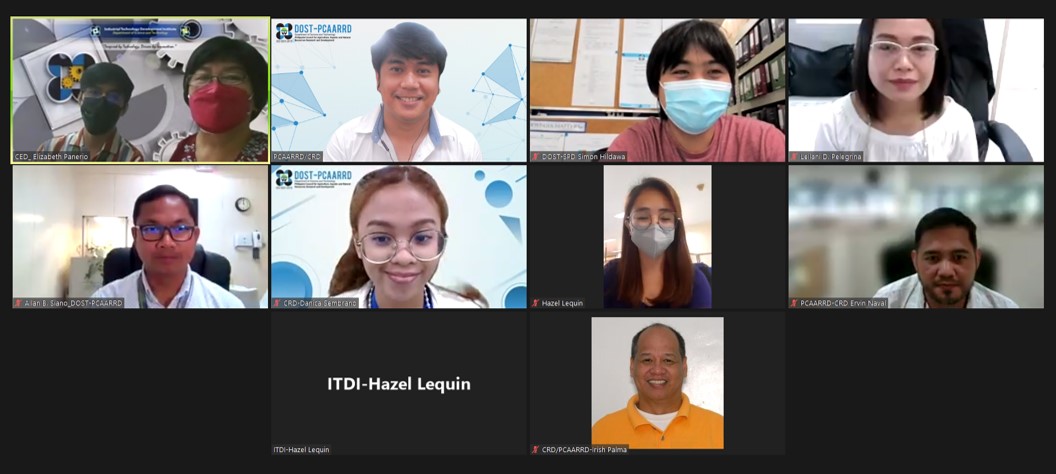
New developments on the detection kit for tomato yellow leaf curl virus (TYLCV) were recently reported in a project review organized by the Philippine Council for Agriculture, Aquatic and Natural Resources Research and Development of the Department of Science and Technology (DOST-PCAARRD).
TYLCV is one of the major challenges of tomato farmers across the whole country, as it affects the growth and fruiting of tomato plants. From its name, its symptoms are seen as marginal curling and yellowing of tomato leaves.
The project, “Development of LAMP-based detection kit for Tomato Yellow Leaf Curl Virus (TYLCV) – Philippine Strains,” is led by Dr. Elizabeth G. Panerio of the Industrial Technology Development Institute of the Department of Science and Technology (DOST-ITDI).
It is one of the projects under the Virology and Vaccine Institute of the Philippines (VIP), which was established to study viruses and viral diseases in the country.

The project targets to develop a detection kit through Loop-mediated Isothermal Amplification (LAMP) technology, which can diagnose faster than traditional PCR-based kits. This kit will be used for quarantine regulations and border surveillance of the virus. It will also determine the TYLCV strains and their occurrences in 15 tomato-producing provinces in the country.
During the review, Dr. Panerio reported the field sampling of tomatoes in four major producing provinces (Nueva Ecija, Tarlac, Laguna, and Batangas) in the country. The team has synthesized two primers for TYLCV and Tomato Leaf Curl Virus (ToLCV), which are essential to the development of the kit.
Since white flies transmit the virus and cause its spread, Technical Evaluator Dr. Mark O. Balendres of the Institute of Plant Breeding, University of the Philippines Los Baños suggested incorporating the integrated pest management (IPM) for TYLCV to strengthen the biosecurity plan of the project.

Completion of leaf sample collection and development of the kit are expected in the second year of implementation of the project.
The review was held via videoconferencing and organized by the Crops Research Division (CRD) of DOST-PCAARRD and attended by the project teams from DOST-ITDI and CRD composed of Officer in Charge, Dr. Allan B. Siano, Program Monitoring and Evaluation and Program-based Information System (PME-PBIS) Section Head Leilani D. Pelegrina, ISP Manager for Vegetables Joel Norman R. Panganiban, and key staff from CRD.
